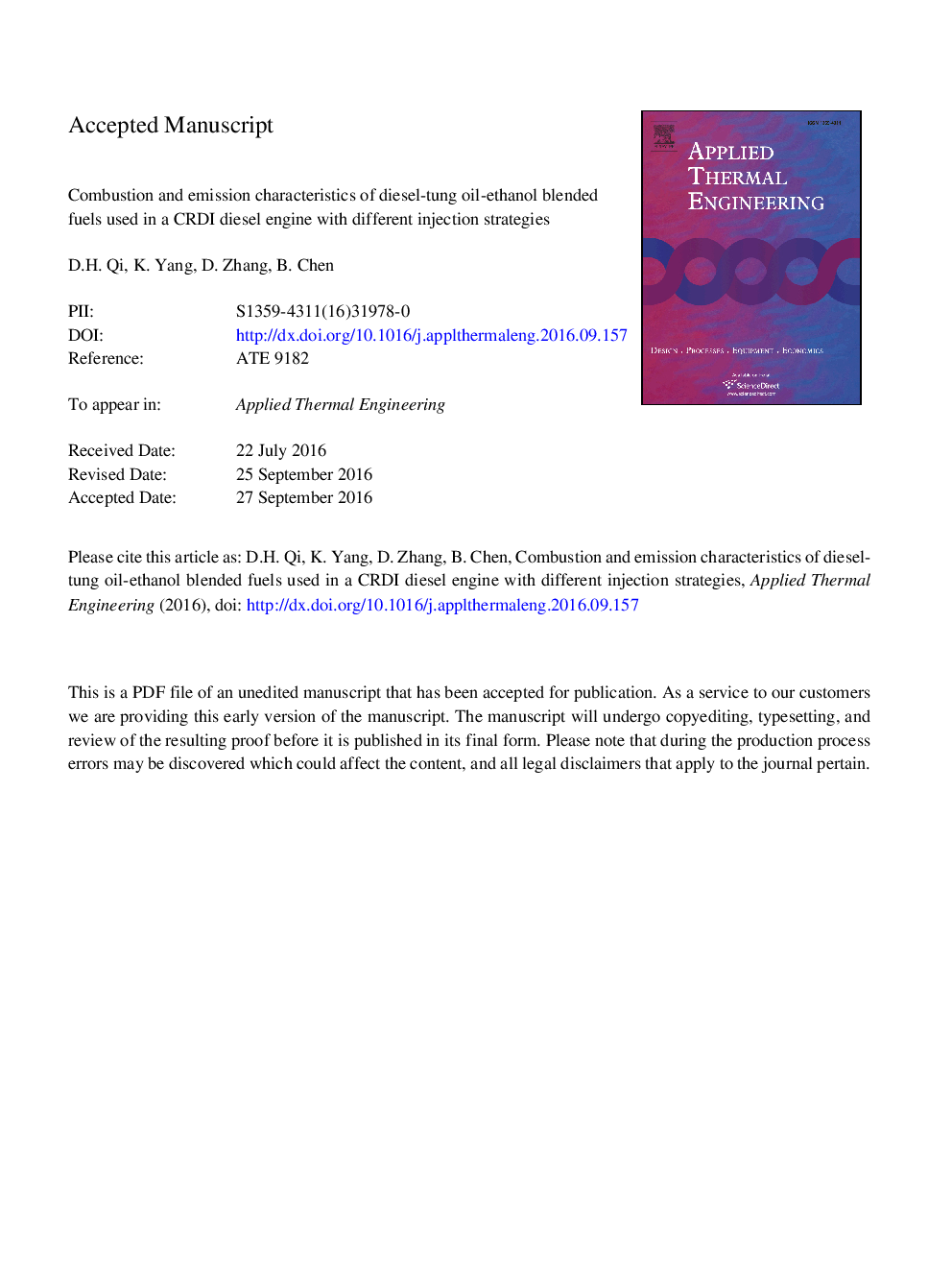| Article ID | Journal | Published Year | Pages | File Type |
|---|---|---|---|---|
| 4992175 | Applied Thermal Engineering | 2017 | 27 Pages |
Abstract
An experimental investigation has been carried out to analyze the performance, emission and combustion characteristics of a common rail direct injection (CRDI) compression ignition (CI) engine fueled with diesel-tung oil-ethanol blended fuels with different ratio of volume fraction. Different injection strategies were adopted at different engine loads for the test engine. The viscosity, density and lower calorific value have also been measured. The experimental results indicated that, compared with diesel fuel, the ignition delay showed a little longer, the peak in-cylinder pressure and heat release rate were higher, while the combustion duration was slightly shortened for the blended fuels. The brake specific fuel consumption (BSFC) was increased, while the brake thermal efficiency (BTE) was increased with the growth of tung oil and ethanol volume fraction. Carbon monoxide (CO) emissions of the blended fuel were higher at low engine loads, and hydrocarbon (HC) emissions were higher and increased with the tung oil and ethanol addition. Nitrogen oxide (NOx) emissions of the blended fuel were lower at low engine loads and slightly higher at high engine loads. Smoke emissions were drastically reduced at high engine loads. In general, the addition of ethanol had stronger influence on the engine performance than tung oil.
Keywords
φFcRDIBMEPaTDCBSFCNOxCOVCombustioncompression ignitionInjection strategyEmissionnitrogen oxideCarbon oxidesafter top dead centerbrake mean effective pressurebrake specific fuel consumptionCommon Rail direct injectionparticulate matterBrake thermal efficiencyCrank AngleCoefficient of variancecarbon monoxidehydrocarbonBTESmoke opacityCO2
Related Topics
Physical Sciences and Engineering
Chemical Engineering
Fluid Flow and Transfer Processes
Authors
D.H. Qi, K. Yang, D. Zhang, B. Chen,
